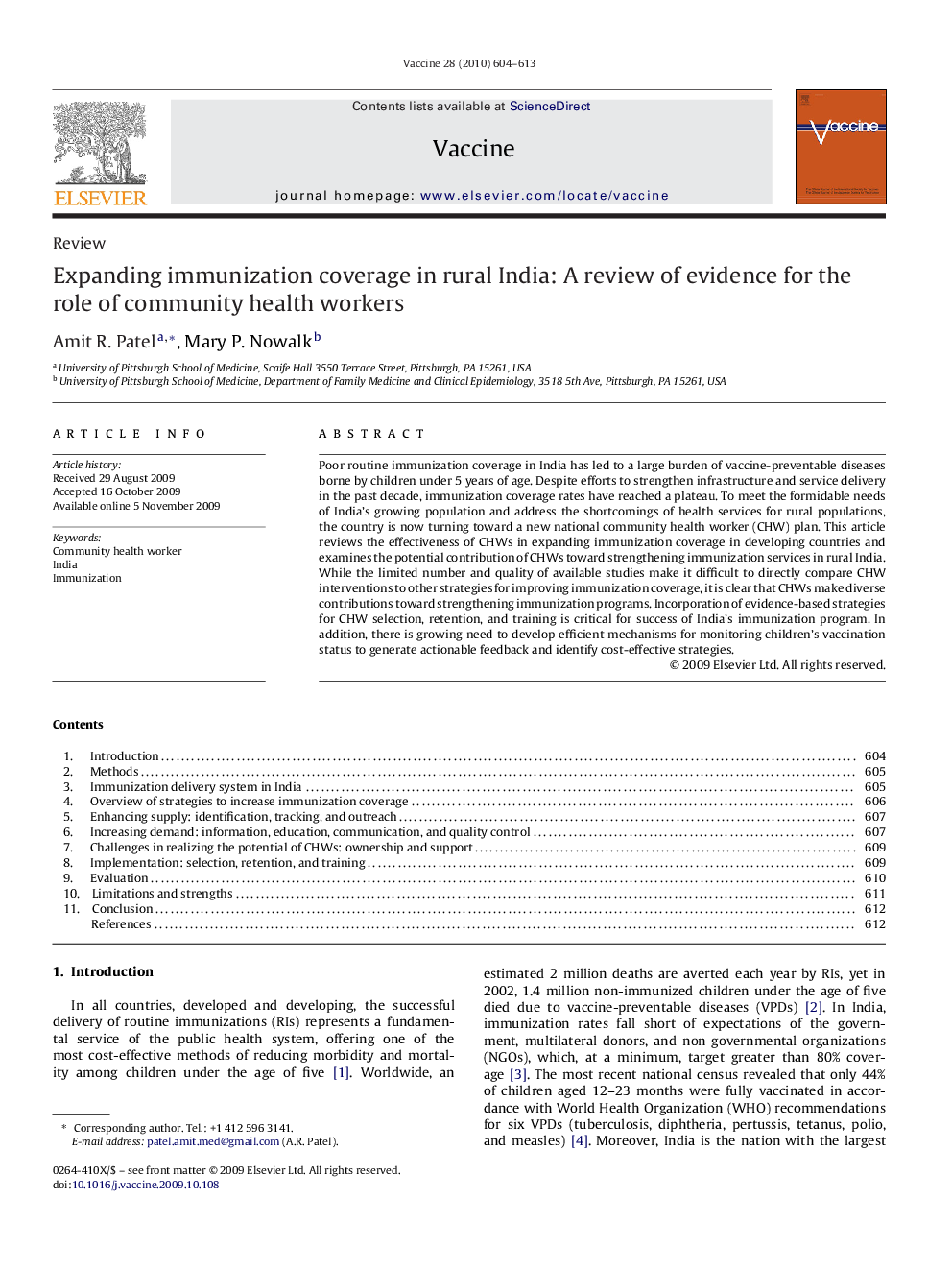| Article ID | Journal | Published Year | Pages | File Type |
|---|---|---|---|---|
| 2404847 | Vaccine | 2010 | 10 Pages |
Poor routine immunization coverage in India has led to a large burden of vaccine-preventable diseases borne by children under 5 years of age. Despite efforts to strengthen infrastructure and service delivery in the past decade, immunization coverage rates have reached a plateau. To meet the formidable needs of India's growing population and address the shortcomings of health services for rural populations, the country is now turning toward a new national community health worker (CHW) plan. This article reviews the effectiveness of CHWs in expanding immunization coverage in developing countries and examines the potential contribution of CHWs toward strengthening immunization services in rural India. While the limited number and quality of available studies make it difficult to directly compare CHW interventions to other strategies for improving immunization coverage, it is clear that CHWs make diverse contributions toward strengthening immunization programs. Incorporation of evidence-based strategies for CHW selection, retention, and training is critical for success of India's immunization program. In addition, there is growing need to develop efficient mechanisms for monitoring children's vaccination status to generate actionable feedback and identify cost-effective strategies.
